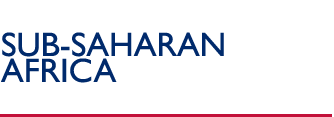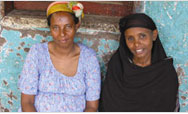Tanzania
Overview
Following decades of one-party socialism and economic stagnation, Tanzania embarked on a fundamental political and economic transformation in the early 1990s. The country now sustains annual economic growth rates that are among the highest in sub-Saharan Africa. In a volatile region, it is a stable country progressing along a path of democratic governance. Tanzania hosts hundreds of thousands of refugees and leads efforts to resolve regional conflicts peacefully. As Tanzania continues on the path towards social change, it is important to seize opportunities afforded by Tanzania's leadership to advance U.S. interests. USAID has programs in education, health (including malaria and HIV/AIDS), democracy, agri-business and sustainable use of natural resources.
Programs
Governing Justly And Democratically
Tanzania's first multi-party elections were held in 1995, with subsequent elections in 2000 and 2005. USAID's democracy and governance program is based on improving public accountability at both the national and local levels as a critical step toward a more competitive democratic process in Tanzania. USAID also strengthens the role of civil society watchdog groups. USAID pioneered the first web-based accountability site in Africa here, making official government budget and audit data publicly available in an easy-to-understand format, which clarifies how public money is being spent on social services. USAID will also help Tanzania reduce corruption by strengthening the roles of investigative journalism and the judiciary, improving Central Bank fiscal oversight, and reforming public procurement.
Investing In People: Education
USAID's education program improves the quality of teaching and the environment for learning by working with predominantly Muslim communities and government from the pre-school to the secondary level in Zanzibar and the coastal areas of mainland Tanzania. The program, funded through President Bush's African Education Initiative, helps the government mentor and train teachers, improves school management, and strengthens teacher skills. An innovative radio instruction activity focuses on pre-primary and primary-level education, while providing access to education for children in isolated communities.
Investing In People: Health
Life expectancy is 44 years and falling, largely due to a 7 percent HIV/AIDS infection rate and endemic malaria. In response, through two Presidential Initiatives focusing on HIV and malaria, USAID programs focus on preventing the spread and mitigating the impact of HIV/AIDS, combating malaria, and increasing the use of reproductive and child health services. More than 25,000 people with AIDS received treatment last year, and over 215,000 orphaned and vulnerable children received support services. To fight malaria, USAID is providing mosquito nets to people in high-risk groups. Confirmed malaria cases in Pemba, Zanzibar were reduced by 87 percent from 2005 to 2006. Infant and child mortality have been reduced an impressive 31 percent and 24 percent, respectively, in just five years. Immunizations for measles and polio and vitamin A supplements have reached 85 percent of targeted children.
Economic Growth: Economic Opportunity
Thirty-eight percent of Tanzanians-some 17 million people-live in poverty. The vast majority of these people live in rural areas. USAID seeks to increase rural incomes through improved agricultural productivity and market access. It helps farmers produce more through better cultivation techniques and improved access to inputs and new technologies. The program also helps farmers' organizations find new markets for their products and facilitates policy reforms to ease trade barriers. USAID's support to the domestic cashew processing industry created 1,700 jobs. Kilicafe Association has tripled export revenue in three years to over $3 million, thereby improving incomes of 10,000 coffee farmers. Overall, sales by USAID-supported farmers have increased to $17 million during the past year, up from $10 million the previous year.
Economic Growth: Environment
The livelihoods of the rural poor depend almost entirely on natural resources. USAID is improving rural livelihoods while conserving biodiversity by enhancing the capacities of local communities to participate in, and benefit from, the sustainable management of natural resources. USAID's program activities continue to be an important component in the development and implementation of the Environment Management Act, one of the country's most important pieces of conservation legislation. Since the initiation of program activities, almost 3 million hectares have been brought under sustainable conservation management.
Back to Top ^
|


